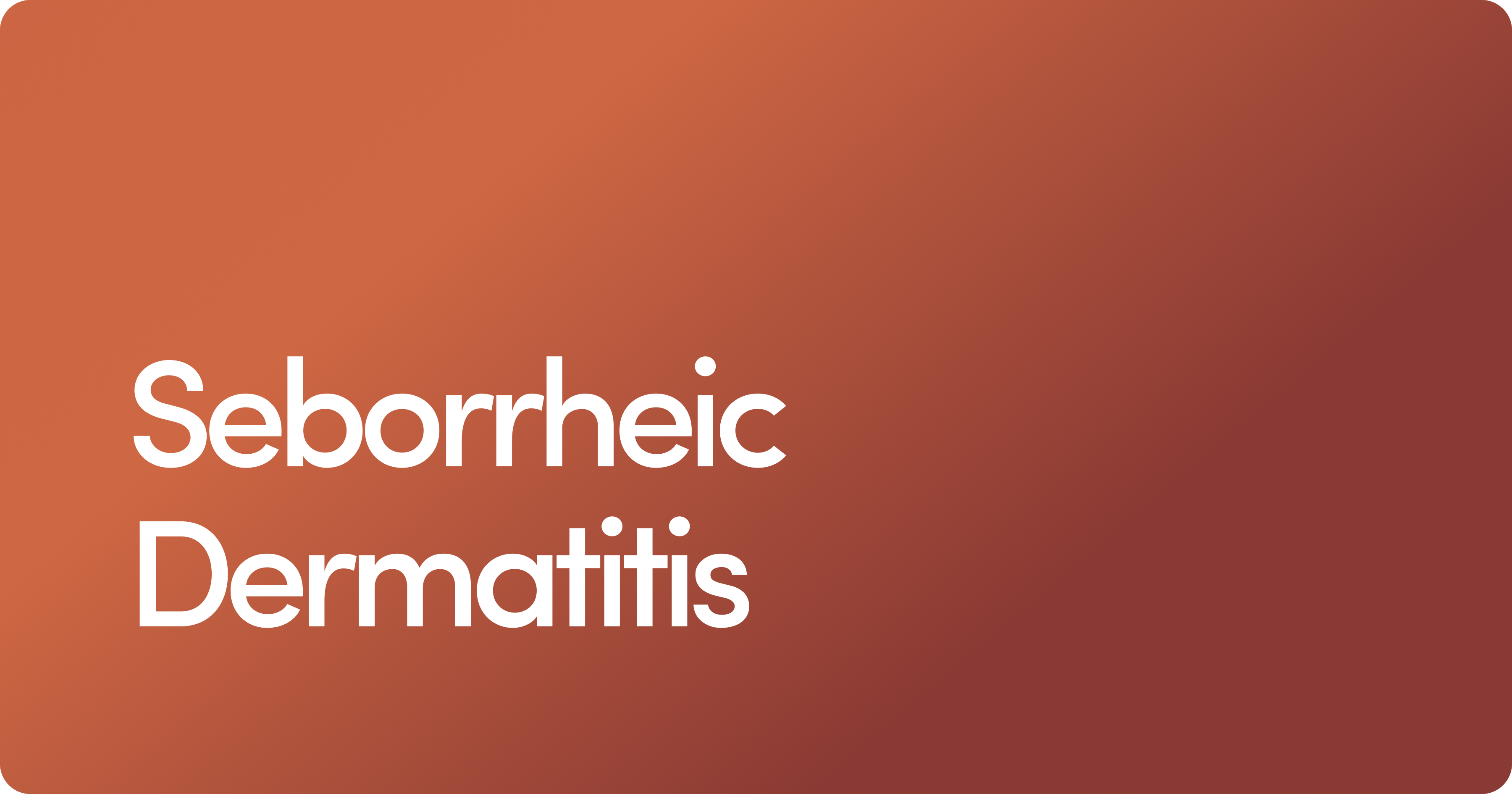Content
FDA approved for more than 25 years
Biotin Foods: 12 Nutrient-Packed Picks for Hair, Skin, and Energy

Biotin — sometimes called vitamin H or vitamin B7 — is an important nutrient for your eyes, liver, skin, hair, and brain function. It’s a water-soluble vitamin, meaning that your body doesn’t store what you get for later, so you need a continuous supply.
Fortunately, there are lots of biotin-containing foods, some of which you probably already eat. This makes it easy to get enough biotin, and is why biotin deficiency is super rare.
So, what foods contain biotin, and how much do you need? We’ve covered everything biotin does for your body, including 12 foods high in biotin, plus whether you should consider adding a biotin supplement to your routine.
Content
What Does Biotin Do?
Nutritionally, biotin helps break down the protein, fat, and carbs you eat into fuel your body can use for everyday functions.
How does this work? It acts as a coenzyme, which means it teams up with enzymes in your body to kickstart chemical reactions.
When you eat carbs, biotin helps convert them into glucose (sugar), your primary fuel source. It helps digest fats into more usable fatty acids to support hormone production, and it helps process amino acids from protein, which are central to muscle growth and repair.
While biotin’s part in macronutrient breakdown supports healthy hair, skin, and nails, the nutrient also has another job — helping your body produce keratin, the main protein that makes up your hair and nails.
It also supports healthy skin by helping your body maintain a strong barrier, which can reduce dryness and irritation.
Finally, biotin plays a role in brain function. Since it helps convert food into energy, it keeps your nervous system fueled and firing properly, which translates to better focus, sharper thinking, and possibly fewer frustrating brain-fog moments.
Many people born with an inherited biotinase deficiency (which prevents biotin from being properly recycled and used by the body) have neurological and skin symptoms — unless they treat the deficiency with biotin supplements.
How Much Biotin Do You Need?
Most adult men need about 30 micrograms (mcg) of biotin per day, which is fairly easy to get through a balanced diet.
But your goal might go up if you’re:
Dealing with certain health conditions
Recovering from injury
Eating a diet low in biotin-rich foods
Heavy alcohol use and smoking can also affect how much you need. Why? Alcoholism prevents your intestines from properly absorbing biotin. And smoking speeds up the breakdown and turnover of biotin.
While true biotin deficiency is rare, it’s still worth making sure you’re hitting your daily target — especially if you’re chasing better energy, stronger hair, or healthier skin.
What foods have biotin? Keep reading to find out.
All about hair, here
1. Egg Yolks
Egg yolks are one of the richest food sources of biotin, offering around 10 mcg per yolk. That’s one-third of your daily needs right there.
Most of the biotin is concentrated in the yolk because it’s rich in fat and nutrients, while the egg white actually contains a protein called avidin that binds to biotin and can block its absorption if you eat the egg raw.
Eating cooked eggs is safer, and it also breaks down avidin, making the biotin more available. Enjoy egg yolks scrambled with some veggies, soft-boiled, poached, or in a breakfast sandwich.
2. Salmon
Salmon is best known for its omega-3 fatty acids and protein content, but it’s also a good source of biotin. In a three-ounce serving of cooked salmon, you can expect around 4 mcg of biotin.
Try salmon grilled, roasted, or air-fried and add it to salads, wraps, stir-fries, and protein bowls, or serve it alongside some cooked broccoli and brown rice for a filling meal.
3. Almonds
Almonds are more than just a solid snack — they’re a good source of biotin, offering about 1.5 mcg per quarter-cup or handful.
Along with biotin, almonds contain healthy fats, protein, and the antioxidant vitamin E, making them a great all-around choice for supporting skin health, brain function, and energy.
Munch on them raw, roasted, tossed into oatmeal or a salad, mixed into a homemade trail mix, or blended into almond butter.
4. Sunflower Seeds
Sunflower seeds may be tiny, but don’t let that fool you — they provide just under 3 mcg of biotin per quarter-cup.
Like other nuts and seeds, they also contain healthy fats, fiber, protein, and vitamin E, important for your hair, skin, brain, and immune health.
Toss shelled sunflower seeds onto your salad, mix them into granola, or add them to your oatmeal or yogurt. You might also enjoy tahini, which is a paste made from sesame seeds that can be used in dips and sauces.
5. Sweet Potatoes
Sweet potatoes aren’t just for holiday casseroles — they’re also a solid source of biotin, providing around 2.4 micrograms per half-cup cooked. That’s roughly eight percent of your daily needs, wrapped in a naturally sweet, fiber-rich package.
Along with biotin, sweet potatoes deliver beta-carotene (which your body turns into vitamin A), helping support skin health and vision. Plus, the complex carbs and fiber in sweet potatoes give you steady energy without the crash.
Roast them, mash them, air-fry them into fries, or toss them into a grain bowl.
6. Avocados
Though the amount of biotin depends on its size, one avocado may meet up to 20 percent of your daily needs.
Avocados also contain potassium, fiber, healthy fats, and antioxidants, which are important for supporting heart health, hair and skin, hormone production, and overall well-being.
Mash them into homemade guacamole, use them in place of mayo on a sandwich or wrap, put them on your enchiladas, or even toss them into smoothies. You can even blend them into chocolate pudding.
See thicker, fuller hair in 3-6 months
7. Walnuts
Walnuts don’t just look like little brains — they support brain health and give you a helpful dose of biotin, too, with about 1 mcg per quarter-cup.
These nuts are also a source of the omega-3 fat ALA, which is a precursor to EPA and DHA, as well as protein, fiber, and antioxidants like vitamin E.
Walnuts are especially great for men looking to support cognitive function, reduce excess inflammation, and keep their hair and skin in top shape.
Crush walnuts and toss them into oatmeal, add them to pancake or muffin batter, or blend them into homemade pesto in place of traditional pine nuts. You can also simply grab a handful on the go.
8. Spinach
While it only provides around 0.5 mcg of biotin per half-cup cooked, spinach is low in calories and high in nutritional value. It also contributes iron, fiber, folate, and vitamin C.
Add spinach to your breakfast scrambles and omelets, smoothies (blueberries make a great blended duo with leafy greens), pasta, sandwiches, or grain bowls.
9. Oats
Whether you prefer overnight oats or a warm bowl of stovetop-cooked oatmeal in the morning, oats deliver about 0.2-0.6 mcg of biotin per cup cooked.
They’re also a good source of soluble fiber, especially a type called beta-glucan, which has been extensively studied for its heart health benefits (like lowering high cholesterol levels).
If you’re not an oatmeal fan, try tossing oats into waffle batters, using them to top muffins, or blending oats into oat flour to use in baking.
10. Liver (Organ Meat)
Most men wouldn’t list liver as a favorite food, but if you’re looking for a heavy dose of biotin, it probably holds the title as the best per serving.
In a three-ounce serving of cooked liver, you’ll find 27-35 mcg of biotin, which is essentially your entire day’s requirement.
Beef or chicken liver is also high in iron, vitamin A, and vitamin B12, making it a powerful food for energy, red blood cell production, and even testosterone support.
If you’re new to cooking liver in your kitchen, it’s often prepared by sautéeing it with onions, blended into pâté, or snuck into meatloaf or burgers. Or, you might prefer ordering it first at a restaurant where it’s been expertly prepared.
11. Legumes
Legumes like beans, peas, peanuts, and lentils are full of biotin — offering 1.5 to 2.5 mcg per half-cup cooked, depending on the type.
These nutritional powerhouses also contain a hearty mix of fiber, protein, and iron to support heart health, digestion, blood sugar management, and energy stability.
Add legumes to chili, burritos, grain bowls, salads, pasta dishes, or soups and stews in the Instant Pot for an easy biotin boost that works as hard as you do.
12. Yeast
Both brewer’s yeast (a byproduct of brewing beer often used in baking) and nutritional yeast (made for food and seasoning use, deactivated and dried) contain biotin. The amount varies by brand.
However, fortified nutritional yeast tends to contain more, coming in at around 4 mcg per two-tablespoon (12-gram) serving. The same serving size of active dry yeast provides 2.4 mcg of biotin.
What About Biotin Supplements?
Getting enough biotin is important, but getting a ton (like through a high-dose supplement) isn’t necessarily better.
In fact, taking too much biotin might cause side effects like skin rashes, insomnia, excessive thirst, or digestive issues.
Sometimes, megadose biotin supplements can even interfere with blood test results, like heart health and thyroid markers, possibly leading to inaccurate diagnoses.
Instead, taking a foods-first approach is safer and usually supports adequate biotin levels for most men. Plus, biotin deficiencies are incredibly rare.
Still, if you’re interested in trying biotin supplements to see if they help improve hair growth, brittle nails, or dry skin, it’s best to first speak with a healthcare provider for personalized medical advice.
Our Biotin Builder Gummies provide 300 mcg per gummy. They also contain some vitamin B12, B6, folic acid, and vitamin D.
Hair loss treatments, delivered
Biotin plays a central role in energy metabolism, brain function, and the health of your hair, skin, and nails. Getting enough of it is important — but most people don’t have a problem with adequate biotin intake.
Let’s recap what we know about high biotin foods:
Biotin helps break down fats, protein, and carbohydrates in your diet into nutrients your body can use. It also helps your body produce keratin, improve your skin barrier, and support mental clarity.
Get plenty of biotin from eating a variety of foods. Legumes, nuts, seeds, egg yolks, dark leafy greens, and beef liver all contain biotin.
Biotin supplements may be beneficial for those who don’t eat enough biotin in their diet. But most people don’t have a true biotin deficiency.
Have more questions about your hair health? Explore our men’s hair care resources. For personalized guidance from a licensed healthcare provider on issues like hair loss, start by taking our free online assessment.
7 Sources
- American Academy of Dermatology Association. (n.d.). Do you have hair loss or hair shedding? https://www.aad.org/public/diseases/hair-loss/insider/shedding
- American Academy of Dermatology Association. (2024). Hairstyles that pull can lead to hair loss. https://www.aad.org/public/diseases/hair-loss/causes/hairstyles
- American Academy of Dermatology Association. (2024). Tips for healthy hair. https://www.aad.org/public/everyday-care/hair-scalp-care/hair/healthy-hair-tips
- Ho CH, et al. (2024). Androgenetic alopecia. https://www.ncbi.nlm.nih.gov/books/NBK430924/
- Hoover E, et al. (2023). Physiology, hair. https://www.ncbi.nlm.nih.gov/books/NBK499948/
- Pulickal JK & Kaliyadan F. (2023). Traction alopecia. https://www.ncbi.nlm.nih.gov/books/NBK470434/
- U.S. National Library of Medicine. (2023). In brief: what is the structure of hair and how does it grow? https://www.ncbi.nlm.nih.gov/books/NBK546248/
Editorial Standards
Hims & Hers has strict sourcing guidelines to ensure our content is accurate and current. We rely on peer-reviewed studies, academic research institutions, and medical associations. We strive to use primary sources and refrain from using tertiary references. See a mistake? Let us know at [email protected]!
This article is for informational purposes only and does not constitute medical advice. The information contained herein is not a substitute for and should never be relied upon for professional medical advice. Always talk to your doctor about the risks and benefits of any treatment. Learn more about our editorial standards here.
Knox Beasley, MD
Education
Bachelor of Science, Life Sciences. United States Military Academy.
Doctor of Medicine. Tulane University School of Medicine
Training
Dermatology Residency. San Antonio Uniformed Services Health Education Consortium
Certifications
Board Certified. American Board of Dermatology
Medical Licenses
Dr. Beasley is licensed in all 50 states
Affiliations & Memberships
Fellow, American Academy of Dermatology
Specialties & Areas of Focus
Hair Loss, Dermatology
Years of Experience
10 years of clinical practice as a Dermatologist
Previous Work Experience
Medical Director - YouHealth Medical Groups, 2025–
Private practice, 2024–
Chief of Dermatology - , 2015–2019
Publications
Wilson, L. M., Beasley, K. J., Sorrells, T. C., & Johnson, V. V. (2017). Congenital neurocristic cutaneous hamartoma with poliosis: A case report. Journal of cutaneous pathology, 44(11), 974–977.
Banta, J., Beasley, K., Kobayashi, T., & Rohena, L. (2016). Encephalocraniocutaneous lipomatosis (Haberland syndrome): A mild case with bilateral cutaneous and ocular involvement. JAAD case reports, 2(2), 150–152.
Patterson, A. T., Beasley, K. J., & Kobayashi, T. T. (2016). Fibroelastolytic papulosis: histopathologic confirmation of disease spectrum variants in a single case. Journal of cutaneous pathology, 43(2), 142–147.
Beasley, K., Panach, K., & Dominguez, A. R. (2016). Disseminated Candida tropicalis presenting with Ecthyma-Gangrenosum-like Lesions. Dermatology online journal, 22(1), 13030/qt7vg4n68j.
Kimes, K., Beasley, K., & Dalton, S. R. (2015). Eruptive milia and comedones during treatment with dovitinib. Dermatology online journal, 21(9), 13030/qt8kw141mb.
Miladi, A., Thomas, B. C., Beasley, K., & Meyerle, J. (2015). Angioimmunoblastic t-cell lymphoma presenting as purpura fulminans. Cutis, 95(2), 113–115.
Beasley K, Dai JM, Brown P, Lenz B, Hivnor CM. (2013). Ablative Fractional Versus Nonablative Fractional Lasers – Where Are We and How Do We Compare Differing Products?. Curr Dermatol Rep, 2, 135–143.
Siami P, Beasley K, Woolen S, Zahn J. (2012). A retrospective study evaluating the efficacy and tolerability of intra-abdominal once-yearly histrelin acetate subcutaneous implant in patients with advanced prostate cancer. UroToday Int J, June 5(3), art 26.
Siami P, Beasley K. (2012). Dutasteride with As-Needed Tamsulosin in Men at Risk of Benign Prostate Hypertrophy Progression. UroToday Int J, Feb 5(1), art 93. https://www.urotoday.com/volume-5-2012/vol-5-issue-1/48691-dutasteride-with-as-needed-tamsulosin-in-men-at-risk-of-benign-prostatic-hypertrophy-progression.html
Why I Practice Medicine
Dr. Beasley began doing telemedicine while serving in the U.S. Army, providing dermatologic care for soldiers stationed around the world. This experience sparked his passion for telemedicine and inspired his commitment to expanding access to healthcare for patients across the United States.
Hobbies & Interests
In his free time, Dr. Beasley enjoys cooking, reading, and trips to the beach with his wife and two kids (with sunscreen of course).
Related Articles
Related Conditions
 Hair Loss
Hair Loss
 Male Pattern Baldness
Male Pattern Baldness
 Dandruff
Dandruff
 Scarring Alopecia
Scarring Alopecia
 Seborrheic Dermatitis
Seborrheic Dermatitis
